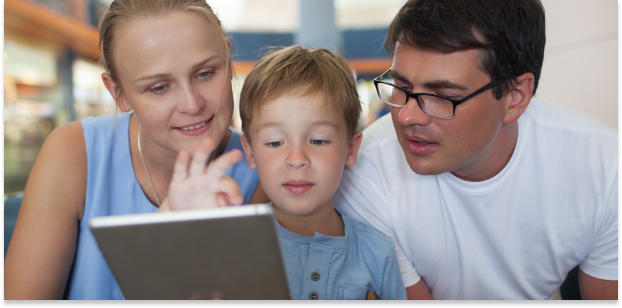New Study: Bullying Having Serious Impact on Kids
Researchers at Florida Atlantic University and the University of Wisconsin-Eau Claire (UW-EC) recently released an impressive study on cyberbullying. The results: There’s a significant overlap between school and online bullying and 64% of the students bullied say it’s affecting their ability to learn and feel safe at school.
Key results include stats for both school and online bullying:
- 73 percent of students had been bullied at school at some point in their lifetime; 44 percent said it happened in the last 30 days.
- 88 percent were called mean names or were made fun of in a hurtful way; 77 percent said they were excluded from groups or left out of things.
- 1 in 5 students said that they had been threatened with a weapon at school.
- 34 percent of students had experienced cyberbullying in their lifetime; 17 percent said that it had happened in the last 30 days.
- 4 out of 5 of the students who were cyberbullied said that mean comments were posted about them online.
- 70 percent of the students said that someone spread rumors about them online.
The national sample of 5,600 children between the ages of 12 to 17 years old, addressed various forms of bullying and cyberbullying, sexting and dating violence, as well as thoughts of suicide, deviant behavior, and resilience or coping mechanisms.
Report: Long-Term Effect of the Selfie Craze
A news report from Channel 7 WKBW, New York examines the selfie craze and its personal and cultural implications. The report uncovers some very compelling, discussion-worthy facts about the rate in which people are documenting and sharing their lives.
Key takeaways for families:
- Women ages 16-25 spend five hours a week taking and perfecting their selfies.
- The average millennial takes 25,700 selfies throughout their lives.
- One expert recommends a course in high school that teaches young people how their social profile will affect them in the future.
- Social media and the urge to post is impacting dating relationships in very stressful ways.
- Parents think other parents post too much about their children.
- The average parent will post nearly 1,000 photos of their child online before the child is five years old.
- The digital footprint for many newborns begins before the child has touched the ground.
- Instagram-famous teens are now pulling in up to $300,000 per post with the top Instagrammer earning a staggering $12 million. (These are the people influencing/inspiring your teens).
For more on the impact of selfies, read here.
6 Teens Risk Lives to Take a Selfie
The warning sign to “Keep Off Ice,” didn’t keep six New York teens from venturing onto a frozen pond in Central Park to take the perfect selfie. The six teens, ages 15 and 16, fell through the ice and were rescued by passersby just in time. They were taken to a local hospital with mild hypothermia and released.
Note: No selfie is worth your life. Still, more and more people are getting hurt and even killed trying to capture like-worthy selfies. For more, read 10 Tips to Help Boost Your Teen’s Selfie Safety IQ
Twitter (Finally) Filters Out Abusive Tweets
At last. Twitter, the social network known for its 140-character word wars, is taking measures to weed out offensive tweets before users see them. Long criticized for being a hotbed for online conflict, trolls, and bullying, Twitter will modify it’s search function to catch “potentially sensitive” content. Content containing violence or nudity won’t show up in a normal search.
Note: Thank you, Twitter for making this long-awaited move. While teens love the fast-moving platform, it has inherent risks such as cyberbullying, pornography, and unsafe hashtag threads we hope this new move will help remedy. For more on Twitter and teens, read Parent, Is Your Teen Being Foolish on Twitter?
Digital Safety Resource Round-Up
Some very exciting things are going on in the content realm on the topic of online safety specific to families. Here are just a few of the resources making an impact and equipping us all to succeed in the digital space.
UnSelfie: Why Empathetic Kids Succeed in Our All-About-Me World by Dr. Michele Borba. Bestselling author Michele Borba offers a 9-step program to help parents cultivate empathy in children from birth to young adulthood. Unselfie explains why developing a healthy sense of empathy is a key predictor of which kids will thrive and succeed in the future.
Screenwise: Helping Kids Thrive (and Survive) in Their Digital World by Devorah Heitner. Screenwise offers an encouraging perspective on how to thoughtfully guide kids in the digital age. You can also check out Devorah’s TED Talk on the challenge of raising digital natives.
Outsmarting Your Kids Online: A Safety Handbook for Overwhelmed Parents by Amber Mac and Michael Bazzell. Whether you have a preschooler, preteen, or teen, this book offers age-appropriate strategies help empower parents to make smart online decisions for the whole family.
Good Pictures Bad Pictures: Porn-Proofing Today’s Young Kids by Kristen A. Jenson M.A. and Dr. Gail A. Poyner. Good Pictures Bad Pictures is a comfortable, read-aloud story about a mom and dad who teach their child what pornography is, why it’s dangerous, and how to reject it.
Shamenation: The Global Epidemic of Online Hate by Sue Scheff with Melissa Shorr. Coming in Fall 2017, Shamenation will document how cyber-shaming has become the national pastime—and what the public can do about it. From trolling, revenge porn, sexting scandals, email hacks, or cyber-lynchings, Shamenation makes the case we are all one tweet or post away from a digital disaster.
Toni Birdsong is a Family Safety Evangelist to McAfee. You can find her on Twitter @McAfee_Family.













